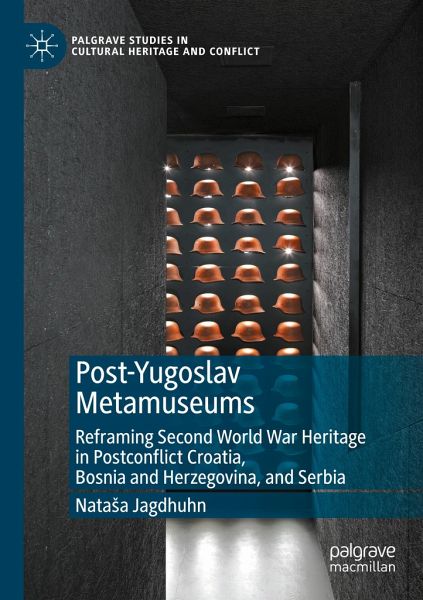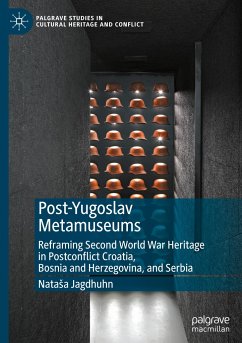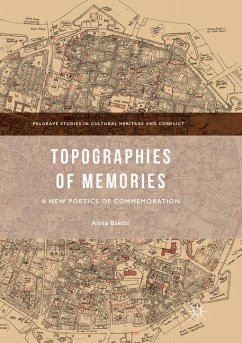
Post-Yugoslav Metamuseums
Reframing Second World War Heritage in Postconflict Croatia, Bosnia and Herzegovina, and Serbia
Versandkostenfrei!
Versandfertig in 6-10 Tagen
42,99 €
inkl. MwSt.
Weitere Ausgaben:

PAYBACK Punkte
21 °P sammeln!
This book analyzes how Second World War heritage is being reframed in the memorial museums of the post-socialist, post-conflict states of Croatia, Bosnia and Herzegovina, and Serbia. It argues that in all three countries, a reluctance to confront undesirable parts of their national histories is the root cause explaining why the state-funded Second World War memorial museums remain stuck in the postsocialist transition. In most cases, Second World War museums, exhibitions, and displays conceived in the Yugoslav period have been left unchanged. However, there are also examples where new sections...
This book analyzes how Second World War heritage is being reframed in the memorial museums of the post-socialist, post-conflict states of Croatia, Bosnia and Herzegovina, and Serbia. It argues that in all three countries, a reluctance to confront undesirable parts of their national histories is the root cause explaining why the state-funded Second World War memorial museums remain stuck in the postsocialist transition. In most cases, Second World War museums, exhibitions, and displays conceived in the Yugoslav period have been left unchanged. However, there are also examples where new sections were added to the old ones and there are a small number of completely reconceptualized permanent exhibitions. The transitional position of the Second World War museums has made it possible to view these institutions as historical formations in their own right. The book will appeal to students and academics working in the fields of heritage and museums studies, memory studies, and culturalhistory of Southeast-Europe.














